Lack of outpatient anxiety treatment options can increase the risk of untreated anxiety disorders, leading to worsening symptoms, decreased quality of life, and impaired functioning.
Outpatient anxiety treatment is a therapeutic approach that helps address symptoms of anxiety disorders while allowing individuals to maintain their daily routines and responsibilities.
Unlike inpatient or residential treatment, where individuals need to stay in a facility for long periods of time, an outpatient treatment plan is flexible and accessible. This allows patients to get the treatment they need without having to take time off work or school.
During an outpatient anxiety treatment plan, individuals will attend scheduled therapy sessions, support groups, medication appointments, and other therapeutic activities as needed.
Our treatment modalities help us address the multifaceted nature of anxiety disorders and provide a comprehensive and tailored approach to managing symptoms.
Here are some of our key treatment modalities:
Cognitive-behavioral therapy is an effective treatment approach that helps people identify and change destructive thought patterns that cause negative behaviors or emotions.
Below are some of the major techniques used in cognitive-behavioral therapy to help individuals heal from anxiety and other symptoms:
Mindfulness-based techniques help ease symptoms of anxiety by helping individuals turn inward and learn how to focus on what’s happening in the present rather than past experiences.
Unlike treatment modalities like CBT, mindfulness doesn’t have a distinct methodology. It instead teaches individuals how to focus their attention on their daily lives.
These medications target neurotransmitters in the brain to regulate mood, reduce excessive worrying, and reduce physiological symptoms of anxiety like muscle tension or rapid heartbeat.
Classes of medications commonly used in the management of anxiety disorders are:
SNRIs help increase levels of serotonin and norepinephrine in the brain. Medical professionals typically prescribe SNRIs for individuals who don’t respond adequately to SSRIs or as an alternative first-line treatment.
Beta-blockers are commonly used for treating high blood pressure and cardiac arrhythmias. However, they may also be prescribed off-label for managing anxiety symptoms. Beta-blockers typically don’t cause severe side effects, but some potential side effects are fatigue, dizziness, and drowsiness.
Buspirone helps treat short-term anxiety and long-term anxiety disorders. However, as an anxiolytic medication, it may take several weeks to achieve its therapeutic effects.
Understanding the benefits of outpatient anxiety treatment helps individuals with making informed decisions about their mental healthcare.
Here are some of the key benefits of outpatient anxiety treatment:
Our outpatient anxiety treatment offers flexibility in scheduling therapy sessions and appointments. Individuals can attend sessions at times that are convenient for their schedules without having problems with work, school, or family commitments.
Compared to inpatient treatment, outpatient treatment is typically available in local mental health clinics, outpatient facilities, and counseling centers. This reduces the barriers to outpatient anxiety treatment and increases the likelihood of receiving support for anxiety symptoms.
Outpatient anxiety treatment programs offer gradual exposure therapy or systematic desensitization. It helps individuals confront and overcome fears and anxieties in a controlled and gradual manner.
During gradual exposure, the individual is systematically exposed to anxiety-provoking stimuli or situations, starting with those that evoke mild anxiety and gradually progressing to more challenging scenarios.
One of the most significant benefits of gradual exposure in outpatient anxiety treatment is its empowering nature. Once individuals confront feared situations in a controlled environment, they gradually build confidence in their ability to manage anxiety and handle stressors.
Each successful exposure experience reinforces a sense of mastery and control.
At Skyline Recovery Center, our outpatient anxiety program incorporates community support mechanisms, such as peer support and group therapy.
These support mechanisms play crucial roles in enhancing the treatment experience and outcomes for individuals experiencing anxiety and co-occurring disorders. Some common types of community support individuals can benefit from include:
Peer support groups involve individuals who have experienced similar mental health challenges. They offer mutual support and provide practical advice.
Joining a peer support group gives individuals a sense of belonging. It also gives people confidence in knowing that their feelings are valid, which is crucial for building self-esteem and reducing self-stigma.
Hearing stories of successes and progress in a peer support group gives hope and motivation for individuals to continue their journey to recovery and healing.
Group therapy involves a licensed therapist leading a group of individuals through therapeutic sessions to address anxiety and related issues.
At Skyline Recovery Center, we are committed to delivering a wide range of evidence-based therapies and support systems to effectively manage anxiety disorders.
We offer evidence-based therapies like CBT, DBT, and mindfulness-based techniques to address anxiety.
Our psychiatric providers also work closely with clients to evaluate the need for medication, monitor its effectiveness, and make necessary adjustments to ensure optimal symptom management with minimal side effects.
At Skyline Recovery Center, our team is comprised of highly skilled and experienced mental health professionals dedicated to providing quality care.
We combine various therapeutic modalities based on the individual’s needs to address the cognitive, emotional, and behavioral aspects of anxiety. This way, we can ensure treatment is tailored to each person’s specific needs.
We incorporate stress reduction techniques like mindfulness meditation, progressive muscle relaxation, and breathing exercises to help manage stress and anxiety symptoms effectively.
Below are some other common stress reduction techniques:
We understand that there’s a connection between mental and physical health. For this reason, we treat every individual as a whole person, addressing physical and emotional symptoms or causes of anxiety.
Skyline Recovery Center is dedicated to providing comprehensive, compassionate, and holistic care that empowers you to manage anxiety effectively.
Through our evidence-based treatments, experienced professionals, and our integrated approach to well-being, we aim to be a trusted partner in your journey to wellness.
Our outpatient anxiety treatment program is designed to allow you to enjoy the flexibility and accessibility to treatment. It also includes a tailored therapy plan that addresses the specific needs, preferences, and circumstances of each person.
Embark on your journey to wholeness with Skyline Recovery Center’s outpatient anxiety treatment plan. We are dedicated to empowering you to manage anxiety and reclaim your life through accessible, effective, and compassionate care.
Our comprehensive services, provided by experienced professionals, offer personalized treatment plans that integrate evidence-based therapies and holistic wellness activities.



